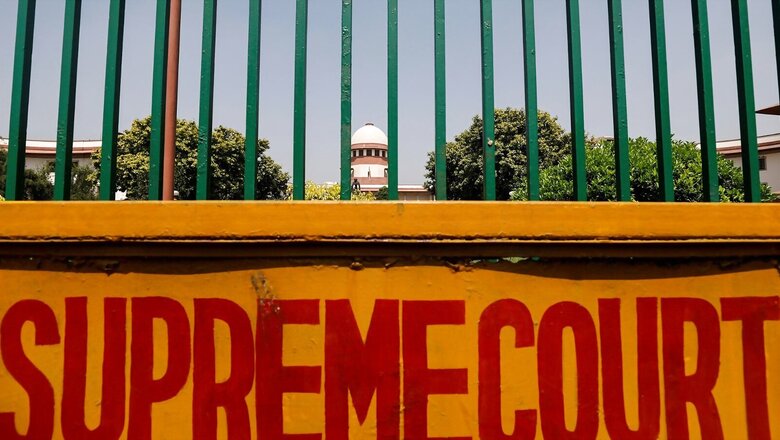
views
On a day when the ongoing tussle between the Centre and Supreme Court got a fresh spark after the Vice-President’s speech in Parliament on Wednesday, Supreme Court Bar Association president Vikas Singh suggested that the Centre could bring in a law to regulate the collegium and judicial appointments.
“The Centre can bring in a law to regulate the collegium because the part of the NJAC (National Judicial Appointments Commission), which discussed the parameters of deciding eligibility of zone of consideration, was not even discussed in the Supreme Court judgment and that part can be completely controlled by law if they’re (collegium) not willing to reinvent,” Singh, a Senior Advocate and former additional solicitor general, told CNN-News18 in an exclusive interview.
Singh’s statement came in the backdrop of Vice-President Jagdeep Dhankhar’s first speech at the beginning of the winter session of Parliament, where he said the NJAC Bill was undone by the top court using judicially evolved doctrine of ‘basic structure’ of the Constitution.
“The historic NJAC Bill, passed unanimously by Parliament, was undone by the Supreme Court using the judicially evolved doctrine of ‘basic structure’ of the Constitution. There is no parallel to such a development in the democratic history of the world,” Dhankhar said.
Singh said he did not agree with Dhankhar on the issue as the SC had the power to interpret the law. “I don’t agree with the Vice-President as the Supreme Court has the power to interpret the law, either by striking it down or reading it out and it is completely in its domain. Whether, in facts of this case, it should or should not be done is a diffrent thing,” he added.
‘Collegium not working fine since NJAC was struck down’
The SCBA president said though the NJAC was struck down correctly, the collegium had not been working fine since. “In this case, it was rightly done; the only thing is how the collegium system functioned after the judgment is something that I can’t justify. To that extent, I have always maintained that it needs to reinvent itself,” he said.
‘Transparent appointments need of the hour’
Singh also suggested there had to be a broad-based and transparent level of selection, which included and ensured that merit was not compromised and the collegium did not end up appointing those whom it knew on a personal basis.
“There should be some search committee to identify names because the way higher judiciary is structured today, the lawyers who are really fit to be judges are earning a lot more than judges. So you need to request and encourage them to become judges and that can only be done by a search committee,” he said.
‘SC decision to prevail until government does something’
Responding to the constant war of words and statements between the Centre and the SC over this issue, Singh said until the collegium reinvented itself or the government brought in a law to regulate it, the SC’s decision will prevail.
“If you feel that there is some improvement to be done, you either bring that improvement and make that effective but till the time you don’t, or the collegium does not reinvent itself, the Supreme Court decision has to be obeyed,” he added.
‘Mix of NJAC and collegium best’
“The amalgamation of the NJAC and collegium system, in the sense that if in the identification of name, the government is involved and, once the identification is done or eligibility is decided or zone of consideration is decided, that zone of consideration should then be left to the collegium to decide and, that I feel, will be the best system where transparency comes in… Where right people will be appointed rather than on the basis of the collegium members’ knowledge,” Singh said.
Earlier in the day, during his speech, Dhankhar criticised how the NJAC Bill was “undone” by the SC, once again highlighting the ongoing tussle between SC and the central government over the appointment of judges. Dhankhar said the Doctrine of Separation of Powers must be respected. He also reminded people of the “laxman rekha” saying any incursion by the three organs of the government into each other’s domain had the potential to upset governance.
According to a PTI report, Dhankhar said the scrapping of the NJAC Bill was a “glaring instance of severe compromise of parliamentary sovereignty and disregard of the mandate of the people”.
Read all the Latest India News here




















Comments
0 comment